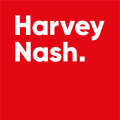Why Tech Professionals Must Start Managing Their Personal Brand
Today we live in an age where, in terms of functionality, there is very little to distinguish one company, product and even person from another. The only thing that really separates them now is branding.
This is especially true for commercial technologists, where specific skills have come to be expected and employers struggle to understand the minutiae of the role they play. Executed well, personal branding can be enough to sway opinion at board level, attract the attention of a potential employer or position you as a thought leader in your space.
But just what is a personal brand and why is it so important?
Put simply, it is the collection of values, experiences and associations that people attach to you. In short, it's what peers and associates think about you when they hear your name mentioned. Unfortunately, IT in general, and CIOs in particular, have traditionally had a poor reputation and therefore a low brand value, especially when compared to their - perhaps more glamorous - counterparts in marketing or sales. The tide appears to be turning though. In a recent survey conducted by Harvey Nash Plc and CIO UK, we found almost two-thirds of IT executives believe that having a strong personal brand is 'very important' to the IT department in achieving its broad objectives. This was especially important around business-facing/strategic objectives such as 'influencing business strategy' and 'promoting business alignment'.
So to influence at board level, to act as a bridge between business and IT strategy and to demonstrate and underpin the value IT provides the business, it is important that the business has an IT figurehead for people to identify and connect with. In short, CIO personal branding is as important a part of IT strategy as, say, project delivery or operational effectiveness.
It's not just for CIOs either. Just as the marketing department works to influence and sway perceptions of a particular product, a strong personal brand can play a significant role in climbing the career ladder and securing that coveted executive position.
Cognisant of the crucial role it plays, we've developed a step-by-step guide to help tech professionals develop their personal brand.
Hurdles to Success
Despite the fact that we are seeing a positive shift among commercial technologists in actively building their brands, the fact remains three-quarters feel there is still more work to do. CIOs are often not natural self-publicists, and clearly many were very conscious of the subtle line between positive brand building and blatant self-promotion.
For others it's a case of overcoming the tangible cynicism they feel towards the whole concept of 'personal branding'. "I concentrate on delivering practical solutions that are secure and work rather than shouting my name or promoting vapourware," said one respondent. In many ways this is understandable - after all even the term 'personal branding' sounds a little like, well, business jargon.
Perhaps reflecting this, the more personal the brand building activity is, the less likely the CIO is to do it. So whilst 60 per cent keep their LinkedIn profiles factually up to date, only 14 per cent maintain blogs or online diaries which express subjective, personal opinions.
The importance of promoting a personal brand over and above the job title is especially important for IT executives. Regardless of the huge steps forward IT is taking in becoming business enabling, the job titles of CIO, CTO and IT Director still tend to languish towards the bottom of the party invite lists, and the need to promote personal values to add colour and real meaning to these job titles remains important.
Click here to download your copy of The Harvey Nash Ireland Guide to Developing a Personal Brand Employers Can't Ignore.
Gavin Fox is an Associate Director at Harvey Nash Ireland and Head of Practice for Harvey Nash Technology. Over the past nine years he has become a critical member of the Harvey Nash Ireland team, contributing to the company's strategic outlook, developing its Technology and Recruitment Solutions business and ensuring client expectations are exceeded.




